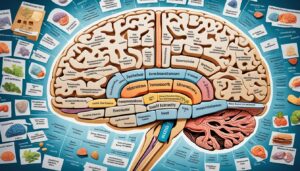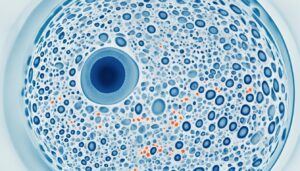Holistic wellness is a comprehensive approach to health that considers the interconnectedness of the mind, body, and spirit. It emphasizes the importance of balance and harmony in achieving optimal health and well-being.
Photo by Jay Castor on Unsplash
Unlike conventional medicine, which often focuses on treating symptoms, holistic wellness aims to address the root causes of health issues by considering all aspects of a person’s life.
This approach recognizes that physical, emotional, and spiritual health are deeply intertwined and that nurturing each aspect is essential for overall well-being.
What is Holistic Wellness?
Holistic wellness is an approach to health that considers the whole person, including their physical, emotional, mental, and spiritual well-being. It involves a combination of practices and lifestyle choices that promote balance and harmony.
Holistic wellness encourages individuals to take an active role in their health by adopting practices that support all aspects of their well-being.
In holistic wellness, the mind, body, and spirit are viewed as interconnected components of a person’s overall health. A disturbance in one area can affect the others.
Chronic stress can lead to physical ailments, and physical illness can impact emotional and mental health. Addressing all aspects of health, holistic wellness aims to create a balanced and harmonious state of being.
Popular Alternative Therapies
Acupuncture
Acupuncture is an ancient Chinese practice that involves inserting thin needles into specific points on the body to stimulate energy flow, known as Qi.
It is believed to restore balance and promote healing by correcting energy imbalances.
Acupuncture is known for its ability to reduce pain, alleviate stress, and improve overall well-being.
Photo by Katherine Hanlon on Unsplash
Acupuncture is commonly used to treat conditions such as chronic pain, migraines, arthritis, and anxiety. It is also effective in managing symptoms of various chronic conditions and improving overall health.
Aromatherapy
Aromatherapy involves using essential oils extracted from plants to promote physical and emotional well-being. These oils can be inhaled or applied to the skin, allowing their therapeutic properties to enhance mood, reduce stress, and support overall health.
Photo by Chelsea shapouri on Unsplash
Essential oils like lavender, peppermint, and eucalyptus are known for their calming, invigorating, and healing properties. Aromatherapy can be practiced through diffusers, inhalation, or topical application. This therapy is effective in promoting relaxation, improving sleep, and boosting mood.
Mindfulness Meditation
Mindfulness meditation is a practice that involves focusing on the present moment with non-judgmental awareness.
It helps individuals develop a deeper connection with themselves and their surroundings, reducing stress and enhancing emotional well-being.
Photo by Oluremi Adebayo: https://www.pexels.com/photo/woman-meditating-in-the-outdoors-2908175/
Mindfulness meditation is known to improve mental clarity, reduce anxiety, and promote emotional balance. It encourages self-compassion and helps individuals manage stress more effectively.
Yoga
Yoga is a holistic practice that combines physical postures (asanas), breath control (pranayama), and meditation. It promotes flexibility, strength, and relaxation, benefiting both the body and mind.
Photo by Cliff Booth: https://www.pexels.com/photo/photo-of-women-stretching-together-4056723/
Regular yoga practice enhances physical fitness, improves mental clarity, and promotes inner peace. It is effective in reducing stress, improving posture, and enhancing overall well-being.
Energy Healing
Energy healing therapies like Reiki, Qigong, and Healing Touch involve the manipulation of the body’s energy fields to promote healing and balance.
Practitioners use their hands to transfer healing energy to the recipient, addressing energy blockages and restoring harmony.
Photo by Alexander Grey on Unsplash
Energy healing helps reduce stress, alleviate pain, and promote a sense of well-being. It is believed to support the body’s natural healing processes and enhance overall health.
Holistic Nutrition
Holistic nutrition emphasizes the consumption of whole, nutrient-rich foods to support overall health and wellness.
This approach recognizes that food is not merely fuel but a crucial component of physical, mental, and emotional well-being.
Whole foods, which are minimally processed and rich in essential nutrients, provide the body with the vitamins, minerals, and antioxidants it needs to function optimally.
Photo by Jane Trang Doan: https://www.pexels.com/photo/assorted-sliced-fruits-in-white-ceramic-bowl-1092730/
Consuming a diet rich in whole foods can have profound effects on overall health. It can boost the immune system, improve digestive health, enhance mental clarity, and support sustained energy levels.
By avoiding processed foods high in sugars, unhealthy fats, and artificial additives, individuals can reduce the risk of chronic diseases such as heart disease, diabetes, and obesity.
Incorporating a variety of nutrient-dense foods into your diet is essential for holistic nutrition. Examples include:
- Fruits and Vegetables: Fresh, organic produce like berries, leafy greens, and cruciferous vegetables.
- Whole Grains: Brown rice, quinoa, oats, and barley.
- Lean Proteins: Fish, poultry, legumes, and nuts.
- Healthy Fats: Avocados, olive oil, and seeds.
- Herbs and Spices: Turmeric, garlic, ginger, and basil, which have anti-inflammatory and antioxidant properties.
What is Chiropractic Care?
Chiropractic care is a health profession focused on diagnosing, treating, and preventing mechanical disorders of the musculoskeletal system, particularly the spine.
The primary principle of chiropractic care is that proper alignment of the spine and musculoskeletal structure will enable the body to heal itself without the need for surgery or medication.
Photo by Karolina Kaboompics: https://www.pexels.com/photo/professional-massage-therapist-treating-a-female-patient-s-injured-neck-4506162/
Chiropractors use hands-on spinal manipulation and other alternative treatments to correct alignment problems, improve bodily function, and alleviate pain.
Benefits and common conditions treated
Chiropractic care is known for its benefits in pain management, particularly for back pain, neck pain, and headaches.
It is also effective in treating conditions such as sciatica, joint pain, and sports injuries. Regular chiropractic adjustments can enhance mobility, reduce inflammation, and improve overall health.
How chiropractic care fits into holistic wellness
Chiropractic care aligns well with holistic wellness principles by addressing the root causes of musculoskeletal problems and promoting natural healing.
It complements other holistic therapies by focusing on the body’s ability to heal itself and emphasizing a non-invasive, drug-free approach to health.
Chiropractic care supports the interconnectedness of body systems and contributes to overall physical and emotional well-being.
Benefits of Integrating Alternative Therapies
#1 Comprehensive approach to health
Integrating alternative therapies into healthcare provides a comprehensive approach to health that considers all aspects of an individual’s well-being.
This holistic approach combines conventional medical treatments with complementary therapies to address physical, emotional, and spiritual health.
By treating the whole person rather than just symptoms, this approach aims to achieve optimal health outcomes.
#2 Patient-centered care and empowerment
Alternative therapies often emphasize patient-centred care, empowering individuals to take an active role in their health.
This involves collaboration between healthcare providers and patients to develop personalized treatment plans that align with patients’ values, preferences, and goals.
Empowering patients to make informed decisions about their health fosters a sense of partnership and mutual respect.
#3 Enhanced quality of life
Integrating alternative therapies can significantly enhance the quality of life. Patients often experience reduced pain, improved sleep, increased energy levels, and greater emotional balance.
Holistic treatments such as acupuncture, aromatherapy, mindfulness meditation, yoga, and energy healing contribute to a deeper sense of well-being and vitality, promoting long-term health and happiness.
Embracing holistic wellness and integrating alternative therapies can lead to a more balanced and fulfilling life. Considering the interconnectedness of mind, body, and spirit, and exploring therapies such as acupuncture, aromatherapy, mindfulness meditation, yoga, and chiropractic care, individuals can achieve optimal health and well-being.





